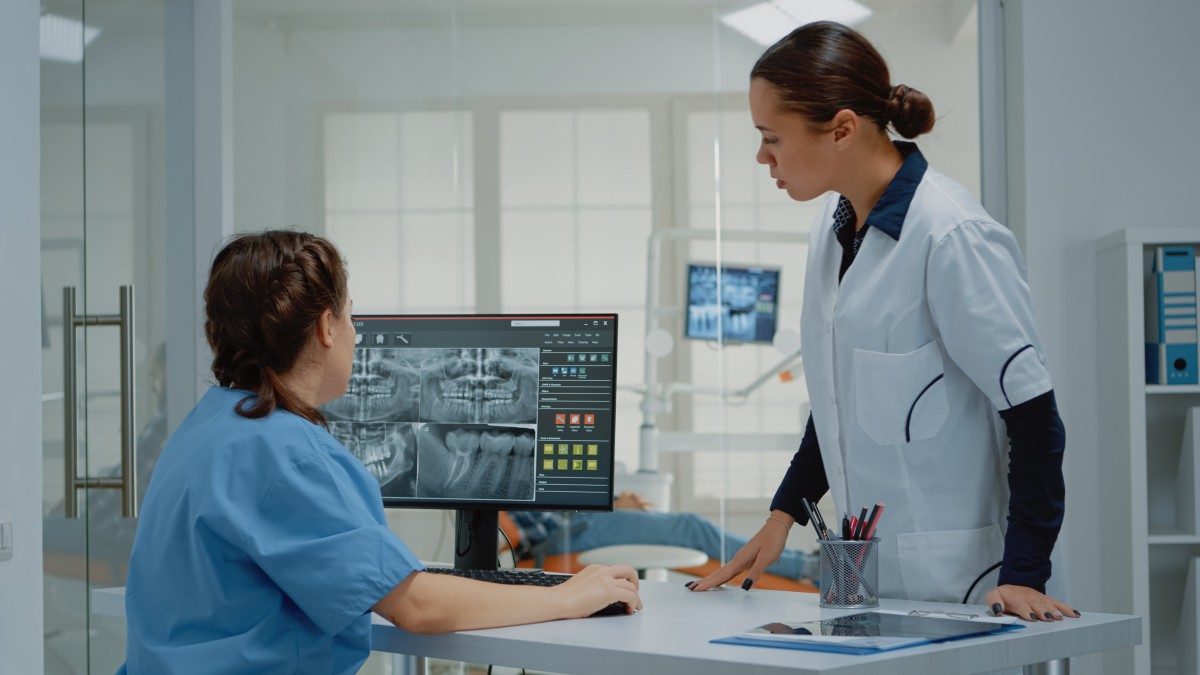Using Patient Education Videos to Support Preventive Care Strategies
As a healthcare provider, you know prevention saves lives. From routine screenings and lifestyle counseling to vaccinations and early detection,...
4 min read
Robert McDermott Sep 12, 2024 12:10:18 PM
 Few people seek out dental careers hoping for countless hours coding, talking to insurance companies to correct coding issues, or, in the worst cases, looking for ways to make up for financial shortfalls due to delayed or reduced claims.
Few people seek out dental careers hoping for countless hours coding, talking to insurance companies to correct coding issues, or, in the worst cases, looking for ways to make up for financial shortfalls due to delayed or reduced claims.
Whether it’s a dream or not, ICD-10 diagnosis codes for dental medical billing can make worst case scenarios a reality. However, ignoring a billable medical diagnosis code can result in money left on the table -- not -- building practice revenue. It also impacts patients. By not cross coding dental and medical insurance, you may be preventing patients from receiving the full range of their benefits.
The solution? Finding the right tools to help your administrative staff accurately and efficiently code for dental billing and claims, whether it’s CDT or ICD-10.
Quick Links:
To ensure proper patient records and prompt payment from dental insurers, getting CDT codes correct is essential, though it can be complex. As a result, it ends up being a time-consuming process for many dental practices.
Whereas CDT codes provide information about in-office procedures, ICD-10 codes provide information about a diagnosis. While many dental practices have not widely adopted ICD-10 coding, you may still be required to to use them when filing with certain payers.
ICD-10 stands for International Classification of Diseases, 10th Revision and provides codes for a diagnosis rather than a procedure. Medical doctors are currently required to code using ICD-10 and, as a standard promoted by both the World Health Organization (WHO) and HIPAA, there’s already a place on ADA forms for the same information. In short, it may only be a matter of time before ICD-10 codes are required on dental claim forms as well.
It’s worth noting that ICD-10 is remarkably robust with over 68,000 entries that are very specific, down to the first and second occurrences. As one can imagine, this coding could likely become both more important and more challenging.

Accurate medical coding for dental procedures is essential for optimizing billing and ensuring claims are processed smoothly. The correct use of medical codes helps practices efficiently navigate the complex landscape of insurance reimbursements, particularly for procedures that overlap between dental and medical coverage, such as oral surgeries or trauma-related treatments.
However, incorrect coding can have significant negative consequences with potential impacts including:
Ensuring accurate medical coding is crucial for maximizing revenue, maintaining compliance, and delivering a seamless experience for both the practice and its patients.
When it comes to dental coding, there are a few key challenges. First, clinical information required for dental coding often has to pass through many hands from clinicians and technicians to the dentist and then to administrative staff.
Further, patient-specific information can include a wide variety of data sources from clinical notes and charts to x-rays and radiographs. With a heavy schedule and potential staffing issues, the volume and variety of the data may present challenges to efficiency and accuracy.
Finally, medical coding for dental often includes procedures and treatments that are used less frequently in a dental practice. These are typically codes for procedures that fall under the medical domain rather than traditional dental services such as oral and maxillofacial surgery, anesthesia and sedation, diagnostic Imaging, and medical conditions requiring dental intervention.
Since these codes are not as commonly used in routine dental care, dental offices may need additional training or software support to ensure accurate coding and billing for these specialized services.
Additional challenges to coding include:
Given the full-team effort as well as the type and volume of information needed to ensure the accuracy of billing and coding, dental offices and organizations will want to leverage every tool available to them, especially with ICD-10 codes. The right dental coding software solution will not only ensure the accuracy of dental billing and claims, but also help save time and effort, especially when it comes to securing your revenue stream.
Coding errors can have a profound impact on the success of a dental practice, particularly when it comes to revenue cycle management (RCM).
Accurate coding is the foundation of efficient billing and reimbursement processes. When errors occur—whether through incorrect codes, incomplete documentation, or mismatches between dental and medical codes—they can disrupt the entire RCM process. These mistakes often lead to claim denials, delayed payments, and increased administrative burdens as staff must spend time correcting and resubmitting claims (and less time on patient care).
Over time, repeated coding errors can result in significant revenue loss, strained cash flow, and decreased profitability for the practice. Moreover, persistent issues with coding can erode relationships with patients and insurers, ultimately impacting the practice’s financial stability and reputation. Ensuring precise coding is therefore crucial for maintaining a healthy revenue cycle and supporting the overall success of the dental practice.

For many dental practices and organizations, 50% of their revenue comes from insurance payments. When 50% of revenue comes from one stream, ensuring that stream is consistent and reliable is essential.
Ensuring that revenue stream means, for many, maintaining a dedicated staff member to attend to insurance verifications and ensure every step of the dental billing process is completed accurately, including coding. The problem most dental practices face is that dentists often aren’t sure which codes to use given that there are thousands of ICD-10 codes from which to choose.
Identifying the right tools to help your team is crucial and building the right tools is what drives the team at iCoreConnect. Our suite of healthcare workflow solutions is designed to assist your team with their daily work and help your practice meet its growth goals.
iCoreCodeGenius can provide the support your team needs to handle medical cross-coding for dental, ensuring claims are submitted accurately and revenue isn’t delayed due to avoidable errors. If you’re ready to see how dental practice software can help you increase your overall efficiency and remain HIPAA compliant, book a demo today!

As a healthcare provider, you know prevention saves lives. From routine screenings and lifestyle counseling to vaccinations and early detection,...

There’s no denying that the AI boom is here. The American Medical Association reports that 66% of physicians are currently using artificial...

If only managing your practice’s revenue cycle came with a crystal ball. You could spot claim denials before they happen, predict when patients might...

Many dental practices focus on patient care first, and rightfully so. But behind every smooth-running office is a billing process that determines...

Reality television is full of competition shows, presenting contestants with high stress challenges they must overcome. For many dental practice...

1 min read
Right now, in most dental offices across the country, finding staff is an issue. In fact, many practices are reducing patient capacity by 10% to...